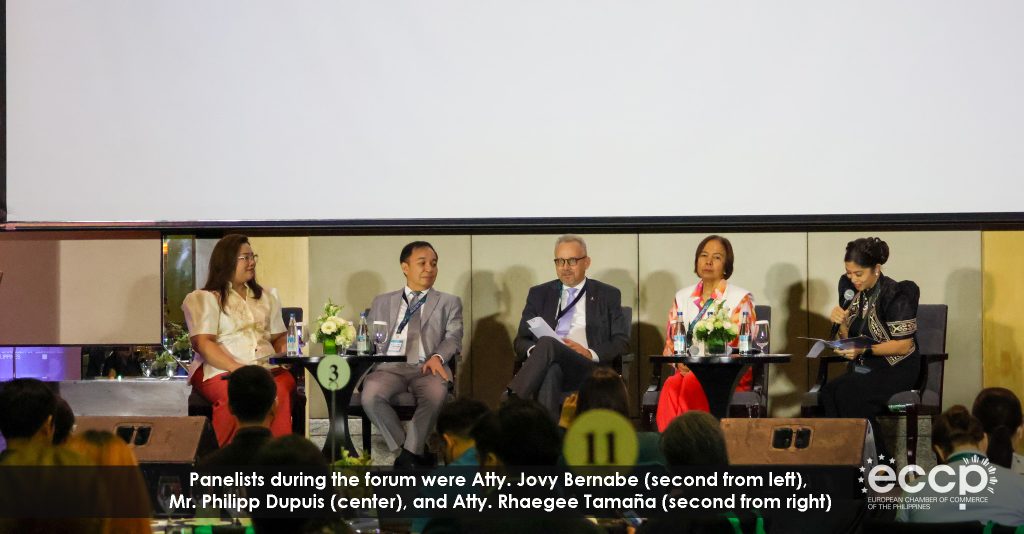MAKATI, Philippines — The Philippine Crop Insurance Corporation reaffirmed its commitment to protecting farmers through inclusive and innovative insurance programs, as PCIC President JB Jovy Bernabe outlined strategies for agricultural resilience during the 2025 Sustainable Agriculture Forum held on April 30 at the Raffles and Fairmont Makati. The forum was organized by the European Chamber of Commerce of the Philippines.
Speaking before agriculture stakeholders, development partners, and policymakers, Bernabe presented the PCIC’s agenda in a keynote address titled “Towards Inclusive and Sustainable Risk Management in Agriculture: The Role of Crop Insurance in Philippine Agriculture.”
PCIC’s two-tiered approach centers on inclusivity and sustainability, pillars that are critical to ensuring that no farmer or fisher is left behind in the face of growing climate risks.
Under its inclusive agenda, PCIC continues to widen access to subsidized crop insurance for vulnerable sectors. In 2024, over 4.2 million farmers and fishers were insured—up by 7.76 percent from 2023—with coverage totaling ₱141.561 billion. Indemnity payouts reached ₱5.031 billion, benefiting over 815,000 claimants.
“These numbers are not just abstract figures. They represent stories of survival—families that were able to replant, restock, and recover,” Bernabe said.
On the sustainability front, PCIC is pilot-testing insurance solutions that use satellite technology, weather data, and AI to process claims without lengthy field visits. The Area-Based Yield Index Insurance, for instance, uses data from the Philippine Rice Information System (PRISM) to calculate payouts after disasters. For fishers, PCIC is developing a parametric insurance model that estimates income loss from cancelled fishing days using satellite weather feeds—turning data into a safety net.
Additionally, the agency is modernizing its underwriting and claims processes through georeferencing and Geographic Information System integration. These tools enhance the precision of area mapping and damage assessment, allowing PCIC to allocate resources more accurately and equitably. “These technologies allow for more precise area mapping, better resource allocation, and more accurate damage assessment,” Bernabe said.
In the panel discussion that followed, Bernabe was joined by Mr. Philipp Dupuis, Head of Trade and Economic Section of the European Union Delegation, and Atty. Rhaegee Tamaña, Director of the Senate Committee on Agriculture, Food & Agrarian Reform.
“Protecting farmers is not just about compensation—it’s about enabling adaptation, encouraging investment, and ensuring that agricultural development is inclusive and future-ready,” Bernabe said, affirming PCIC’s role as a critical institution in promoting food security and farmer resilience.


